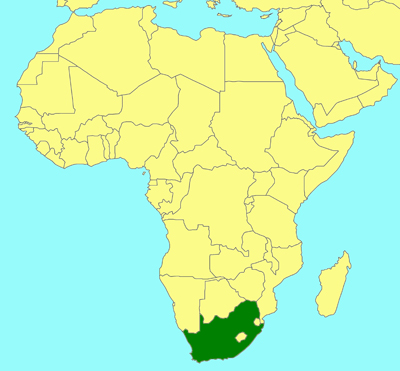|
Distribution |

South Africa. |
|
Etymology |
Nanocthulhu is a reference to the mythical creature Cthulhu, who after millennia of death-sleep on the island of R’lyeh, is awakened by, and immediately begins the cacodaemoniacal pursuit of the crew of the Alert in H.P. Lovecraft’s weird fiction story The Call of Cthulhu (Lovecraft 1928). Cthulhu’s is described as having ‘a pulpy, tentacled head,’ and the clypeal fuscina described herein is reminiscent of Cthulhu’s head; the nano refers to the diminutive size of this wasp. The gender is neuter; the pronunciation is unfortunately controversial. The standard pronunciation is ‘nano- ka-thoo-loo,’ though Lovecraft himself suggested “. . . taken as something like Khl^ul’-hloo,” [H.P. Lovecraft, letter of July 23, 1934 to Duane Rimel; Lovecraft (2005); ‘lovecrafti’ is in honor of H.P. Lovecraft, acclaimed author of weird fiction and the creator of Cthulhu. |
|
Biology |
Unknown, but probably
koinobiont endoparasitoids of muscomorphan Diptera larvae based on the
phylogenteic positioning of the genus in the Trichoplastini. |
|
References |
Buffington, M.L. 2012. Description of
Nanocthulhu lovecrafti, a preternatural new genus and species of Trichoplastini (Figitidae: Eucoilinae). Proceedings of
the Entomological Society of Washington 114(1): 5-15.
Nielsen, M. & Buffington, M. 2011.
Redescription of Stentorceps Quinlan, 1984 (Hymenoptera: Figitidae), with
a description of five new species.
African Entomology 19: 597–613.
|
Credits
|
Photographs and map illustration © Simon van Noort (Iziko South African Museum) or
Matt Buffington
(Systematic Entomology Laboratory, USDA/ARS)
|
|